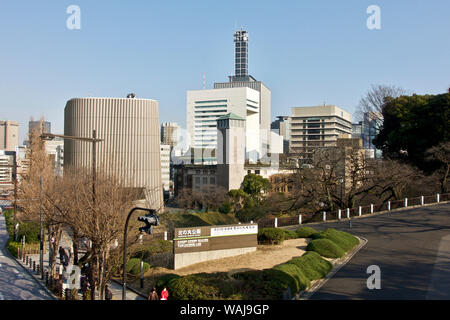In the thriving metropolis of Tokyo, where modernity coexists with tradition, the city's sacred sites and holy places offer a peaceful escape from the fast-paced life surrounding them. These holy grounds, steeped in rich history and architectural beauty, invite visitors to delve into the profound spirituality that resonates within their walls. From the grandiose structures of ancient Buddhist temples to the calm Shinto shrines that dot the landscape, each location tells a unique story, showcasing the varied cultural heritage of Japan.
As one wanders through the temples of this city, the atmosphere shifts. The air feels different, almost sacred, as if moments slows down just enough for contemplation and tranquility to set in. Here, the noises of the city fade, replaced by the gentle whisper of leaves and the soft chiming of bells. Whether you are a dedicated practitioner or simply a curious traveler, the allure of this city's temples beckons, offering a view into the soul of this vibrant city.
Discovering The Cultural Temples
Tokyo is a city where heritage meets modernity, and notably is this more evident than in its ancient shrines. The places of worship of Tokyo, with their detailed architecture and peaceful settings, offer a glimpse into the sacred heart of Japan. From the lively roads of Asakusa to the calm paths of the Imperial Palace, each shrine tells a unique story of the city's heritage. Among the numerous, Senso-ji, the most ancient temple in Tokyo, draws millions of pilgrims each year, welcoming them to experience the beauty of traditional Japanese culture.
As you wander through the grand archways of these Tokyo shrines, you are greeted by an ambiance of tranquility and introspection. Many of the Buddhist places of worship in Tokyo feature stunning gardens and charming landscapes that provide a serene backdrop for thought. The meticulously maintained grounds emphasize the serenity sought in religious teachings. Pilgrims often participate in rituals such as frankincense offerings and meditation, deepening their relationship to the sacred practices rooted in these revered spaces.
Notably, the historical value of Tokyo's shrines adds another layer to their charm. Temples like Meiji Jingu, nestled in a green forest, serve not only as sites of spirituality but also as reminders of Japan's deep heritage. The mix of spirituality and heritage at these sites captivates both locals and travelers alike, making each trip a exploration into the significant knowledge and peace that the religious practices of Japan offer.
A Sacred Nature of Tokyo Shrines
Tokyo's shrines are colorful pockets of spirituality amidst the city landscape, offering a serene refuge for both locals and visitors. Every shrine, often adorned with detailed decorations and surrounded by peaceful gardens, serves as a place of worship and community connection. Among the most famous is Meiji Shrine, a tribute to Emperor Meiji and Empress Shoken, where visitors participate in time-honored Shinto practices while surrounded by the verdant forest that envelops the site.

The ceremonies that take place at these Tokyo shrines hold profound significance, connecting individuals to the spiritual world. People come to pray for good fortune, health, and guidance, often engaging in practices like fortune slips, where they draw fortunes written on strips of paper. The atmosphere is one of reflection and respect, as the sounds of nature provide a gentle backdrop for personal reflection and prayer, creating a deep sense of calm and bond to the divine.
In addition to their religious importance, Tokyo's shrines are rich in historical context and culture. Each site carries its own unique stories and legends, making them essential to comprehending the tapestry of Japanese society. Visiting these shrines doesn't just enrich one's spiritual journey but also provides insights into the customs that have shaped Tokyo through the ages, emphasizing the harmonious blend of the past and modernity that defines the city.
Cultural Significance of Buddhist Monasteries
Buddhist temples in Tokyo serve as hubs of peace amidst the lively city life. They manifest a distinctive blend of faith, architecture, and environment, inviting visitors to pause and meditate. Temples such as Senso-ji and Zojo-ji are not only places of worship but also cultural landmarks that have stood the test of time, showcasing the multifaceted story of Japan's past and traditions.
These temples contribute significantly to the cultural landscape of Tokyo, acting as locations for various ceremonies and events that link the people with their cultural roots. tokyo temples has its own unique rituals, celebrations, and festivals that invite residents and travelers alike, fostering a sense of connection and continuity. For a lot of individuals, these sites are a conduit to their heritage and a symbol of the deeper philosophical teachings of Buddhism, such as compassion and consciousness.
Furthermore, the architecture of Tokyo shrines is a proof to Japan's skill, mixing traditional elements with influences from multiple periods. The elaborate work, spiritual art, and peaceful gardens are not just aesthetically pleasing; they embody the spirit of Japanese culture and faith. Visiting these holy sites offers an opportunity for introspection and understanding of the deep effect that Buddhism has had on the metropolis and its inhabitants.
